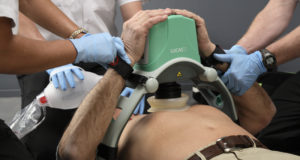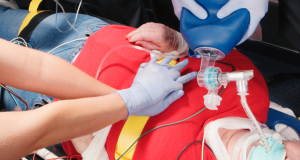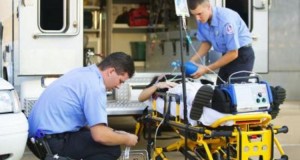Paramedics in a large New York city will no longer be exercising clinical discretion or treating patients with medications or fluids in favor of high-flow, per their management. In a recent mass email to the workforce, new General Manager Tim Frost detailed the controversial new orders:
“We are committed to providing the very best pre-hospital care possible. Each of our providers is skilled and well-trained and we should all be proud of the work we do each day.
In order to maintain ourselves as leaders in EMS, we must continually reflect on the foundations of our practice – the basic things we are required to do as part of our duties. Those basic things are sometimes easy to neglect, yet they are extremely important.
As such, please make note of the following reminders:
1. By NYS BLS Protocol, any patient who is short of breath, has altered mental status, or who requires any ALS workup must receive supplemental oxygen. The amount of oxygen may vary based on the patient’s condition, but it must be initiated.” -email supplied anonymously.

Ambulance
Paramedics were of split opinion on the new dictates, publicly supportive of the new dictates but privately expressing reservations. “It’s really not smart. Anyone who has been in this business for more than ten minutes knows that many patients do not fit the protocols exactly, but can still have legitimate medical problems that can benefit from paramedic intervention in the field” said one paramedic, nervously casting glances over his shoulder. “But we can’t do anything for them. Management won’t let us.”
“It’s astounding, just how stupid this policy is” said another. “I mean, I’ve only been a paramedic for five years, but I’ve seen a lot of hypotensive, septic patients who were satting at 94, 95 percent on room air, but have still been extremely critical. It’s almost as if management wants us to watch these people die. They must be idiots- they really think that oxygen is going to fix sepsis. They sure as hell don’t use evidence-based medicine or research.”
“I’m remembering my BLS roots and just going to the hospital with all of these patients we could benefit with the medications that we carry, because I’ll get fired if I actually use them. I just wish that we could be smart for once. First the strike, and now this. I’m really considering a move to Texas, or another state that doesn’t force me to lobotomize myself to go to work.” This paramedic threw up his hands. “I’ve been working on the East Coast for my entire career, and I love it, but I can’t stand it here. This Tim Frost guy is driving this place into the ground.”
When questioned regarding his controversial directives by local media, General Manager Tim Frost refused to comment, reporting only that “the citizens we serve will continue to get the same stellar care that we have always offered, so long as they present in a fashion that is consistent with recognized guidelines. I don’t think that our people are smart enough to start practicing medicine by going outside of those protocols.” In contrast to evolving aggressive national standards for care of dehydrated patients, Mr. Frost cited “the best medicine is a diesel bolus”, to the not-so-mild scorn of several local physicians. “We know they can’t do much in those buses, but it’s something when they can bring a critical sepsis patient in with a line started, a liter or two on-board, and I’d love to see some Levophed running. Sepsis is absolutely a time-critical condition, and we can really make a big difference even in that first few minutes” said one local emergency doctor as he read Mr. Frost’s directive. “How this came about, I don’t know, but I absolutely disagree with it. Tim Frost clearly has no idea what he’s talking about.”
While paramedics in this cold metropolis are forced to watch septic patients deteriorate past the point of no return and pediatric febrile seizures continue unabated because of an inability to administer IV fluids or obtain access per protocols, local medical-oxygen suppliers are ramping up supply in anticipation of increased demand and local movers are already moving trucks north for moves to Louisiana and Texas. Contacted by phone, HR representative Sue Tompkins of Acadian Ambulance said that she was pleased to hear from several paramedics who were considering moving to a friendlier, more patient-centered environment. “That’s the nature of this business, sadly. A few bad decisions can start an exodus of good paramedics to other services, and we’ve gotten some great people from other services that have driven them away with bad decisions.”
 Call the Cops The 27th Most Trusted Site in Public Safety
Call the Cops The 27th Most Trusted Site in Public Safety





